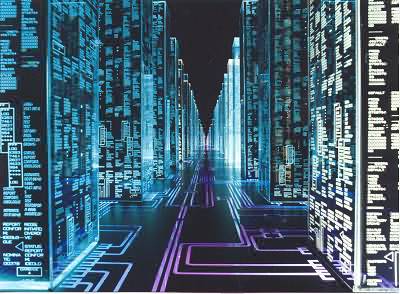This lovehate comes on the heels of the recent death of a 15 year old boy near Barrie, Ontario who ran away from home because his father took away his copy of Call of Duty 4 for the last time. The teen had been spending every waking hour with online friends playing the game and, after hearing his father's threat, left his family only to be found two weeks later. The event is tragic. The family's loss is indescribable. And when people look for the scapegoat, we all know what it's going to be - video games.
I don't know enough to say the behavior of either side in this specific case was flawed or not, but let's look at the facts. A boy spends countless hours engaged in an activity that has become completely normal for millions of teens around the world. The only X factor in the equation is the time spent. And if the only line crossed is that of time, why blame the game?
The push to censorship or restricting personal freedoms is never so at risk as when a child dies. While the tragedy is real, there should never be any occasion to blame a song, songwriter, singer, band, book, author, video game or website. Society has to stop blaming the painting done in dog feces at the modern art gallery for the gallery goer's discontent, blaming the Judas Priest song for the teen suicide, blaming the internet for the death of social intercourse. Society needs to take a strong look at itself and realize that redefinitions of cultural standards have been ever-evolving.
While parents and grandparents hearken back to a day when children would play stickball in the local sandlot or save up their money for a couple of grape kneehighs at the weekly box social, they have to remember that the social free time children have had over the past 150 years in Western culture were not the norm before that. We are not that far, historically-speaking from children working the land 16 hours a day in the summer and 8 hours a day while going to school. We are not that far from free time being a luxury only enjoyed by a small upper class. We are not that far from a child's worst indiscretion being a late night, blanket tent read of D.H. Lawrence. I daresay that if I had a child that wanted to spend their free time reading D.H. Lawrence today, I'd be a proud parent.
Indiscretions and social taboos are not static or sacrosanct. What does scare me, on a regular basis, is lobby groups that seek to ban, restrict or change things because users are too oblivious, obsessed or stupid to treat a hobby as enjoyment instead of entertainment.
Maybe, with the example of network gaming as our guide, instead of bemoaning the death childrens' relationships, we simply need to redefine them. Is there really something more pure to a 15 year old egging a house or sneaking a joint behind a local strip mall than using strategy in an online battle simulation? Is there an advantage to having teens bored out on stoops and corners looking for shit to disturb? Are there any real reasons teens are retreating to online relationships instead of braving the great outdoors? And lastly, are we getting close to that line where we can stop talking about "online" relationships and simply consider them relationships?
While I can't say that I love everything about moving all relationships to the constraints of broadband, I'm certainly not going to fight the future. Mail, games, music, movies, banking, shopping, and even work is done online from home, yet we are loathe to allow for this advancement with our children?
Sure, there are lines that should not be crossed with any technology or tool. Addiction, of any sort, is a real problem and something parents and all of us should be aware of, but the times are a-changin' folks. I foresee the teens of today maintaining over 90% of the relationships in their life though online networks. Teach them how to embrace technology, not fear it. Teach them restraint but not revulsion. Allow for your past to be YOUR past and their futures to be THEIR futures. And, above all, don't blame the technology based on its users.




